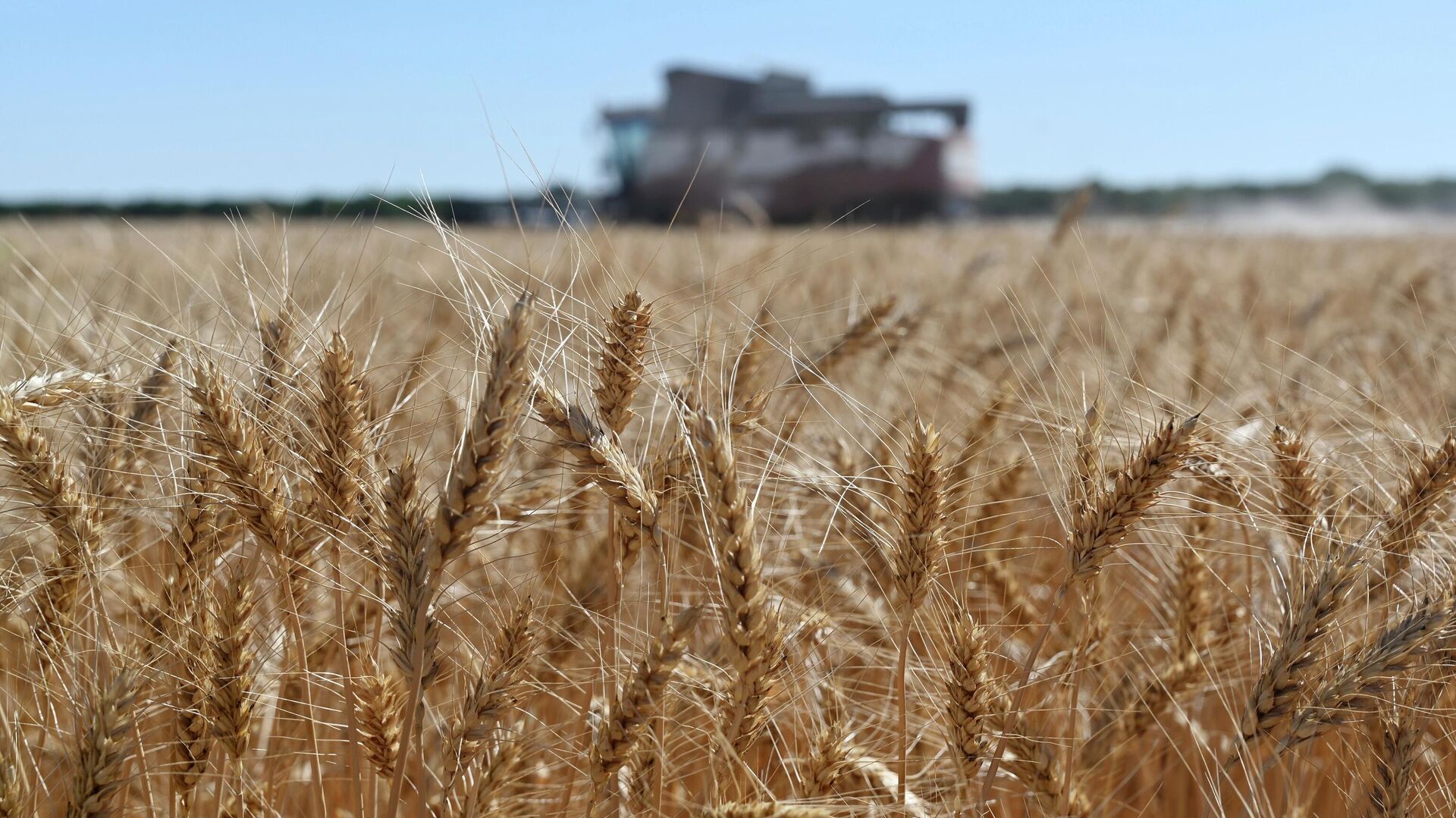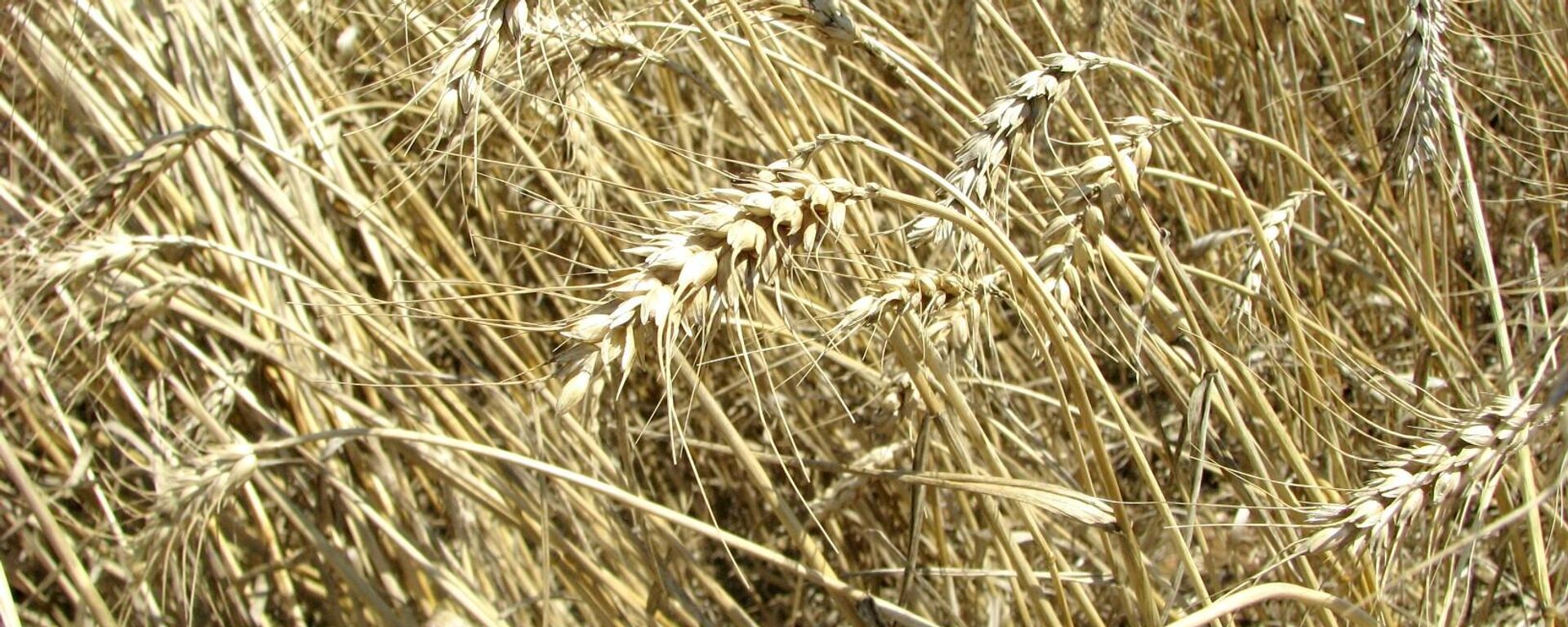https://en.sputniknews.africa/20230717/why-did-russia-terminate-the-black-sea-grain-deal-foreign-ministry-explains-1060593090.html
Why Did Russia Terminate The Black Sea Grain Deal? Foreign Ministry Explains
Why Did Russia Terminate The Black Sea Grain Deal? Foreign Ministry Explains
Sputnik Africa
The deal was signed by Russia, Turkey, Ukraine and the UN in July 2022 to grant a humanitarian maritime corridor for ships exporting food and fertilizers from... 17.07.2023, Sputnik Africa
2023-07-17T15:59+0200
2023-07-17T15:59+0200
2023-08-03T10:50+0200
grain deal
black sea grain initiative
russia
ukraine
united nations (un)
turkey (turkiye)
international
https://cdn1.img.sputniknews.africa/img/07e7/05/18/1059454258_0:159:3078:1890_1920x0_80_0_0_cfc7b6eaf4a36d438357174801ca81db.jpg
The Black Sea Grain Deal will stop operating from July 18 after Russia withdrew its guarantees for the safety of navigation and curtails the maritime humanitarian corridor in the northwestern waters of the Black Sea, the Russian Foreign Ministry said.The ministry noted that the Russian side objects to its further extension and formally informed the Turkish and Ukrainian sides about it, as well as notifying the UN secretariat.Clarifying the reasons for this decision, the ministry said that none of the systemic tasks envisioned in the Russia-UN memorandum had been accomplished:The ministry noted that "at first they tried to bargain additional benefits for the expansion of the Black Sea Initiative (inclusion of new ports, diversification of cargo nomenclature and increased inspections) under its restart, and then part of the ammonia pipeline was destroyed."The body added that Russia will be ready to consider restoring its participation in the grain deal only after reaching concrete results and not just promises from the West.In late June, Russian top diplomat Sergey Lavrov stressed that Moscow saw no reason to extend the grain deal, pointing out that the world's poorest countries received less than 2.5% of the grain under the deal.Earlier on Monday, Kremlin spokesman Dmitry Peskov said that the grain deal agreement has de facto been terminated, however Moscow will immediately return to its implementation after the Russian part of the conditions is fulfilled.
https://en.sputniknews.africa/20230703/black-sea-grain-deals-cessation-will-not-affect-africa-russian-grain-union-1060309638.html
russia
ukraine
turkey (turkiye)
Sputnik Africa
feedback@sputniknews.com
+74956456601
MIA „Rossiya Segodnya“
2023
Maxim Grishenkin
https://cdn1.img.sputniknews.africa/img/07e7/0a/17/1063018107_0:0:1104:1103_100x100_80_0_0_03090c85a11f5d2e8a19cf1d989443c9.jpg
Maxim Grishenkin
https://cdn1.img.sputniknews.africa/img/07e7/0a/17/1063018107_0:0:1104:1103_100x100_80_0_0_03090c85a11f5d2e8a19cf1d989443c9.jpg
News
en_EN
Sputnik Africa
feedback@sputniknews.com
+74956456601
MIA „Rossiya Segodnya“
Sputnik Africa
feedback@sputniknews.com
+74956456601
MIA „Rossiya Segodnya“
Maxim Grishenkin
https://cdn1.img.sputniknews.africa/img/07e7/0a/17/1063018107_0:0:1104:1103_100x100_80_0_0_03090c85a11f5d2e8a19cf1d989443c9.jpg
grain deal, black sea grain initiative, russia, ukraine, united nations (un), turkey (turkiye), international
grain deal, black sea grain initiative, russia, ukraine, united nations (un), turkey (turkiye), international
Why Did Russia Terminate The Black Sea Grain Deal? Foreign Ministry Explains
15:59 17.07.2023 (Updated: 10:50 03.08.2023) The deal was signed by Russia, Turkey, Ukraine and the UN in July 2022 to grant a humanitarian maritime corridor for ships exporting food and fertilizers from Ukrainian ports. As Moscow has repeatedly noted, the second part of the deal, the three-year Russia-UN memorandum, has not been implemented.
The Black Sea Grain Deal will stop operating from July 18 after Russia withdrew its guarantees for the safety of navigation and curtails the maritime humanitarian corridor in the northwestern waters of the Black Sea, the Russian Foreign Ministry said.
The ministry noted that the Russian side objects to its further extension and formally informed the Turkish and Ukrainian sides about it, as well as notifying the UN secretariat.
"Without Russia's participation, the Black Sea Initiative ceases to function from July 18," the statement said.
Clarifying the reasons for this decision, the ministry said that none of the
systemic tasks envisioned in the
Russia-UN memorandum had been accomplished:
The Russian Agricultural Bank has not been reconnected to the SWIFT system.
"The feverish, last-minute proposal of the UN secretary-general on some options with access to SWIFT for a 'subsidiary' or affiliated with our bank is practically unrealizable and unviable - to our knowledge, this is also recognized in the European Union," the ministry said.
The import of spare parts and equipment for agricultural products and fertilizers into Russia
is prohibited as "dual-use" goods.
Foreign accounts of domestic agricultural companies have been frozen, despite the fact that Western sanctions allegedly do not apply to food and fertilizers. Partially unblocked funds 'migrated' into the pockets of the same Westerners to repay loans and pay for gratuitous deliveries of our fertilizers," the Russian Foreign Ministry recalled.
The Togliatti-Odessa ammonia pipeline has not been restored, which was stipulated in both parts of the grain deal.
The ministry noted that "at first they tried to bargain additional benefits for the expansion of the Black Sea Initiative (inclusion of new ports, diversification of cargo nomenclature and increased inspections) under its restart, and then part of the ammonia pipeline was destroyed."
"In this context of blatant sabotage in the implementation of the Istanbul agreements, the extension of the Black Sea Initiative, which has not justified its humanitarian purpose, loses its meaning," the Russian Foreign Ministry concluded.
The body added that Russia will be ready to consider restoring its participation in the grain deal only after reaching concrete results and not just promises from the West.
In late June, Russian top diplomat Sergey Lavrov stressed that Moscow saw no reason to extend the grain deal, pointing out that the world's poorest countries received less than 2.5% of the grain under the deal.
Earlier on Monday, Kremlin spokesman
Dmitry Peskov said that the grain deal agreement has de facto been terminated, however Moscow will immediately return to its implementation after the Russian part of the conditions is fulfilled.



